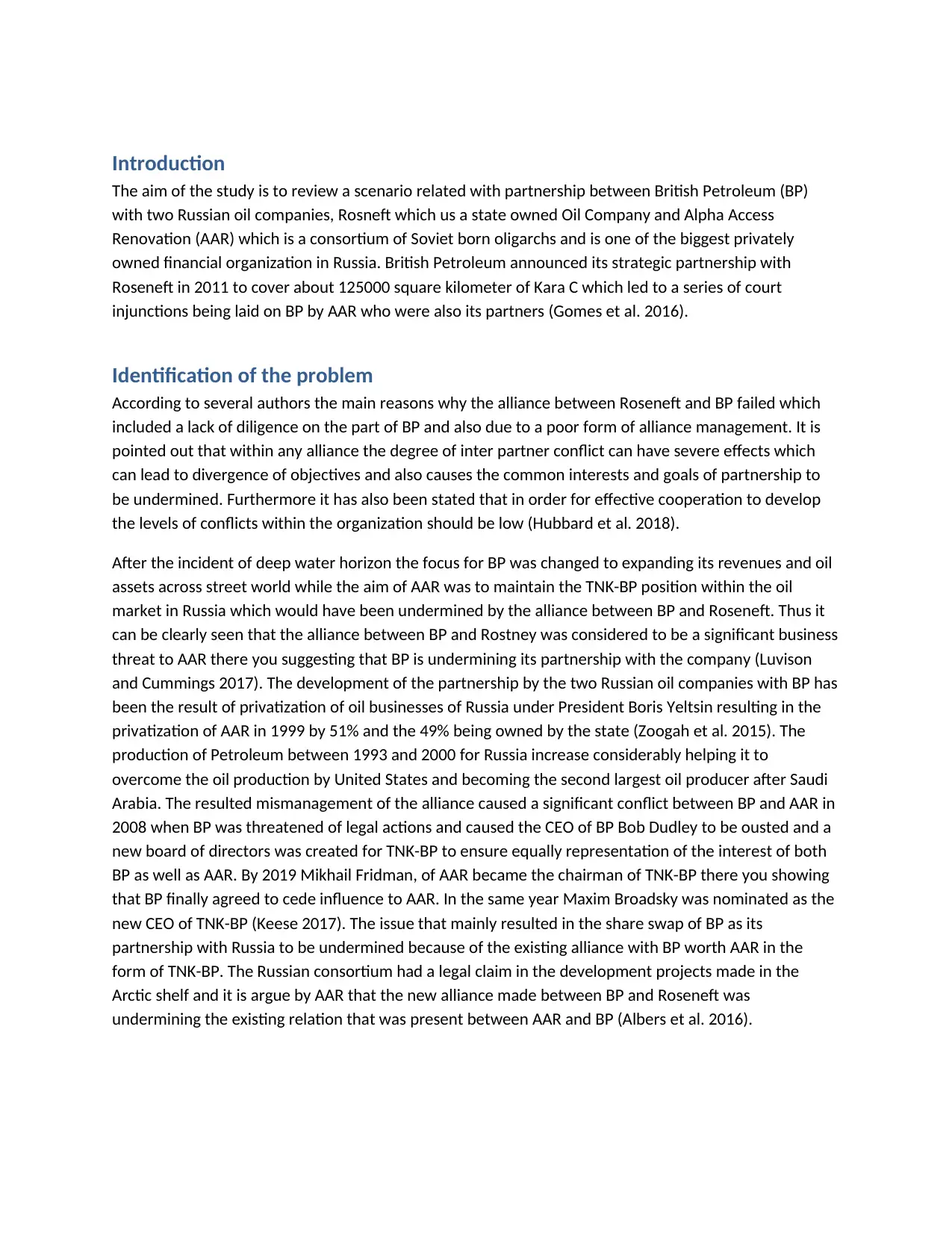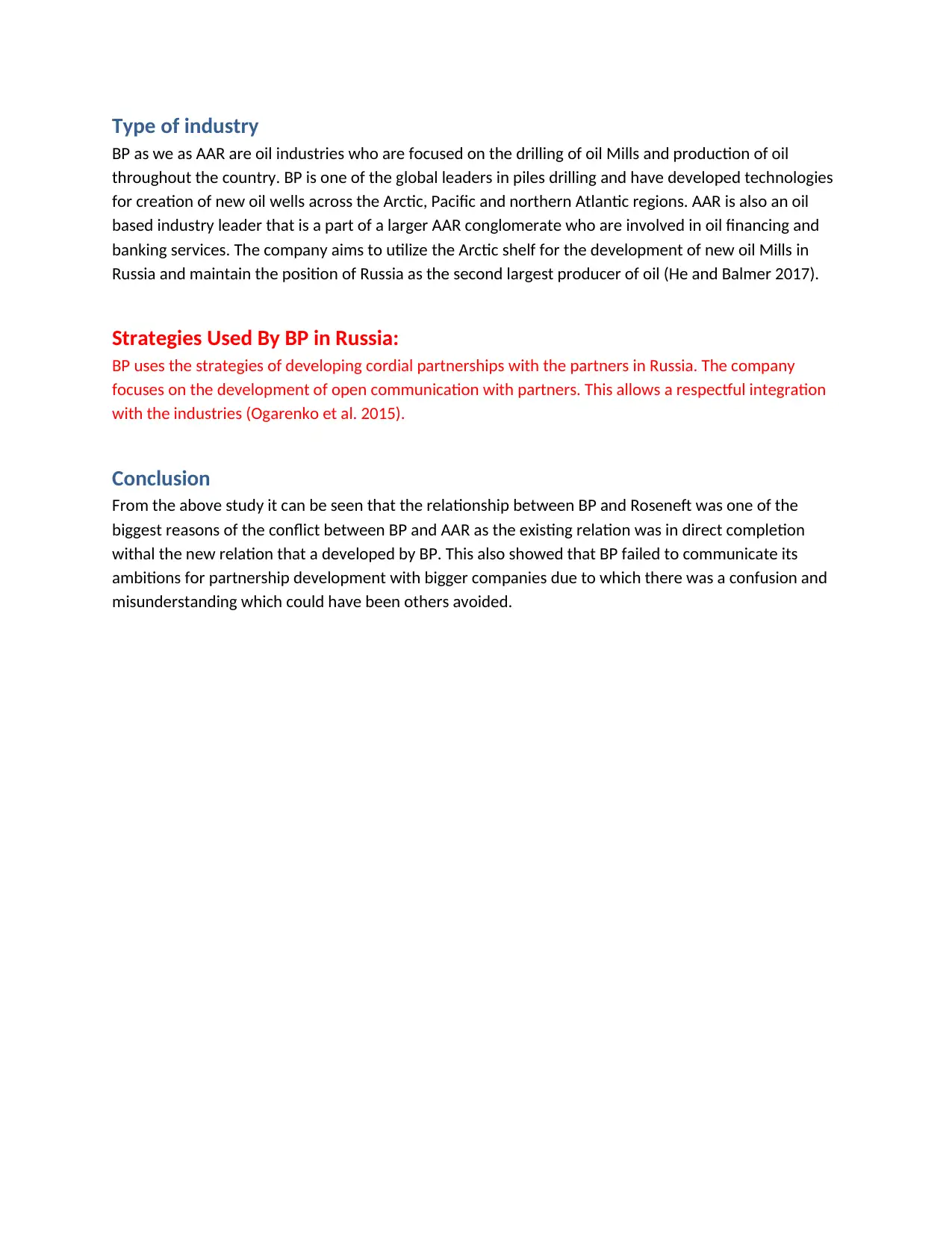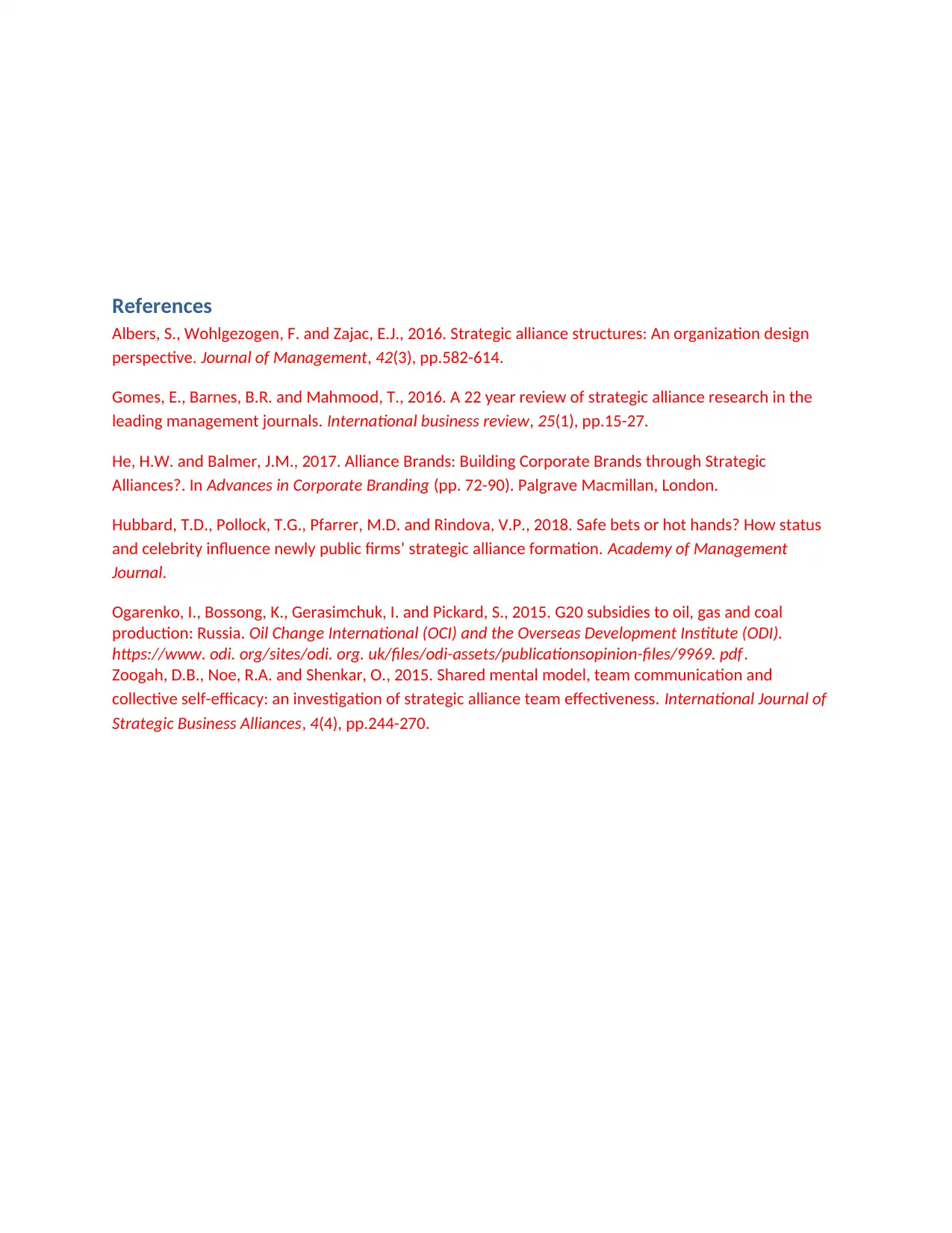Case Study Analysis: British Petroleum's Strategic Alliances in Russia
VerifiedAdded on 2022/11/28
|3
|1104
|242
Case Study
AI Summary
This case study examines the strategic partnership between British Petroleum (BP) and two Russian oil companies, Rosneft and Alpha Access Renovation (AAR). The alliance between BP and Rosneft, announced in 2011, faced challenges due to existing partnerships and conflicts of interest. The study identifies the core problem as a lack of diligence and poor alliance management, leading to disputes and undermining the partnership. It analyzes the industry dynamics, the strategies employed by BP, and the resulting conflicts, including legal actions and changes in leadership. The analysis highlights how differing objectives and the existing alliance with AAR created significant business threats, ultimately leading to BP ceding influence. The case study provides a comprehensive overview of the challenges in strategic alliances and the importance of effective communication and management in international business ventures. It also mentions the privatization of Russian oil businesses and its impact on the partnerships and the oil production in the country. Finally the study also examines the strategies used by BP in Russia.
1 out of 3









![[object Object]](/_next/static/media/star-bottom.7253800d.svg)